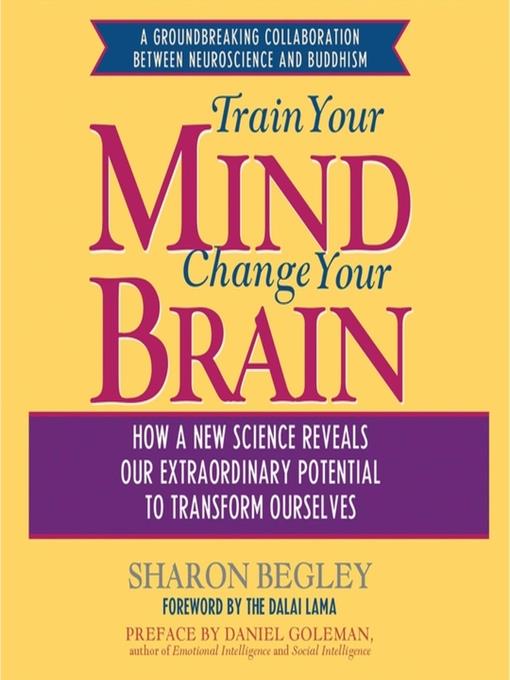
Train Your Mind, Change Your Brain
How a New Science Reveals Our Extraordinary Potential to Transform Ourselves
کتاب های مرتبط
- اطلاعات
- نقد و بررسی
- دیدگاه کاربران
نقد و بررسی

January 15, 2007
The Dalai Lama, Buddhist monks and some of the world's leading neuroscientists all gather once a year at a conference on the latest discoveries in neuroplasticity: the study of how the human brain can change itself. (This is the second book the subject due out in March, along with Norman Doidge's The Brain That Changes Itself
). This remarkable conference serves as the center of Wall Street Journal
science columnist Begley's account of neuroplasticity. Until recently, the reigning theory was that neurons in the brain didn't regenerate. Begley walks readers through the seminal experiments showing that in fact new neurons are created in the brain every day, even in people in their 70s. With frequent tangents into Buddhist philosophy, Begley surveys current knowledge of neuroplasticity. Most interesting is a series of experiments with Buddhist adepts who have spent over 10,000 hours meditating. What these experiments show is tantalizing: it might be possible to train the brain to be better at feeling certain emotions, such as compassion. No less interesting are the hurdles the scientists face in recruiting participants; yogis replied that if these scientists wanted to understand meditation, they should meditate. Despite the title, the book holds no neuroplasticity tips, but it is a fascinating exploration of the ways the mind can change the brain. (Mar. 13)
Corrections:
The author of The Lie Detectors: The History of an American Obsession
(Reviews, Dec. 18, 2006) is Ken Alder.
The title of Heather Ewing's biography of James Smithson is The Lost World of James Smithson: Science, Revolution and the Foundation of the Smithsonian
(Reviews, Jan. 1).

Dense with fascinating research findings on human potential, this fusion of psychological, spiritual, and neuroscientific approaches to growth is a perfect fit with the no-nonsense interpretative skills of Eliza Foss, one of the most mature and insightful narrators working in this genre today. The title is a well-written overview of how people can become more intellectually open, less suspicious and violent, less addictive or impulsive, and more skilled in complex motor sequences. What we discover from within, the author says, is more powerful than what's imposed on us by organized religions. The technical writing in this smooth abridgment is balanced by vivid accounts of the personalities and locations associated with the research. Sensitive writing about love, security, and compassion also softens the lesson. T.W. (c) AudioFile 2008, Portland, Maine

























دیدگاه کاربران